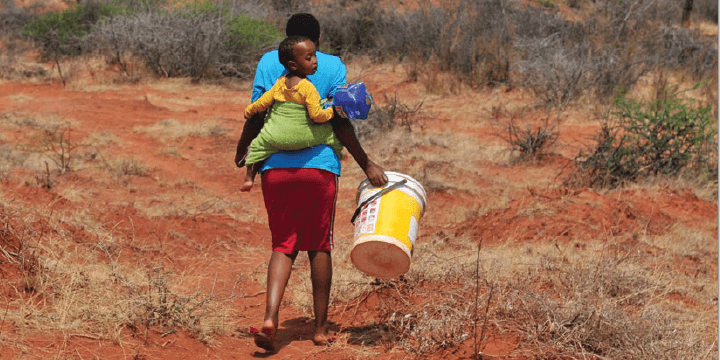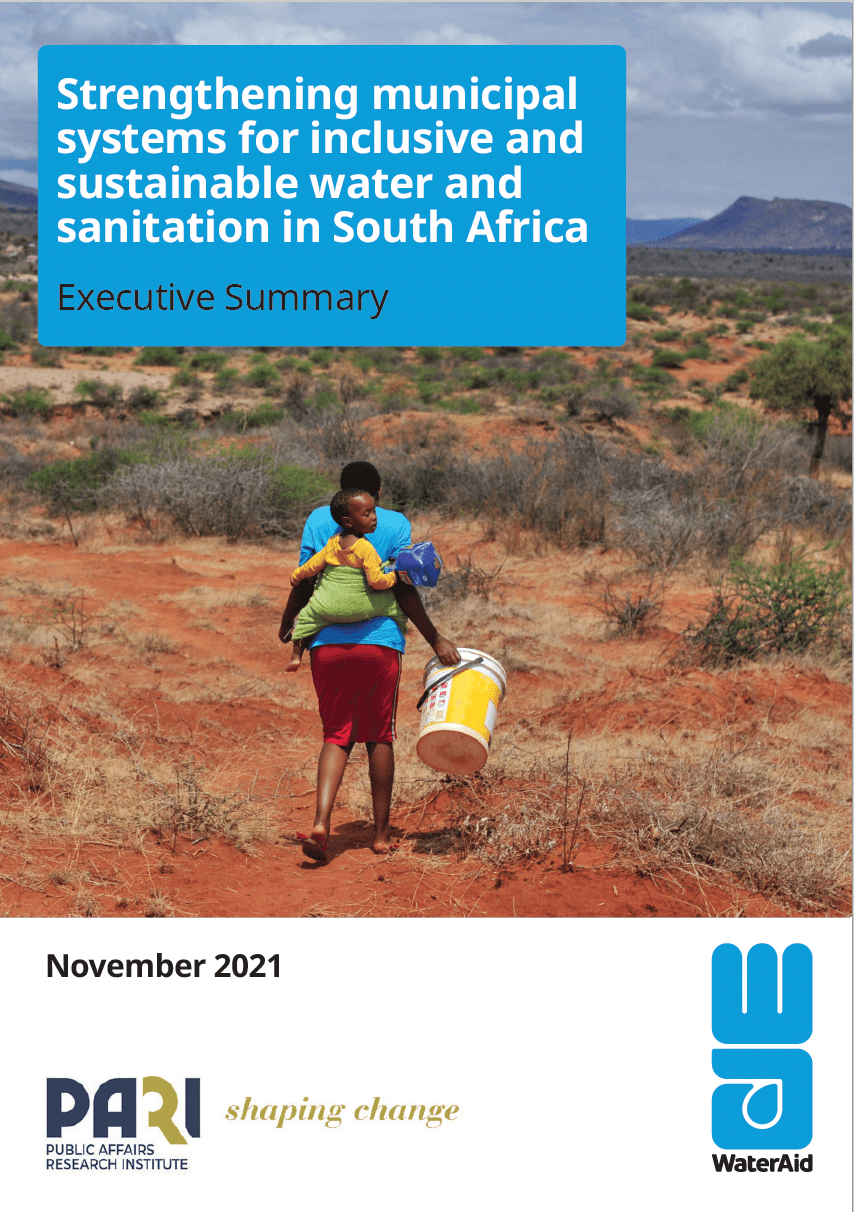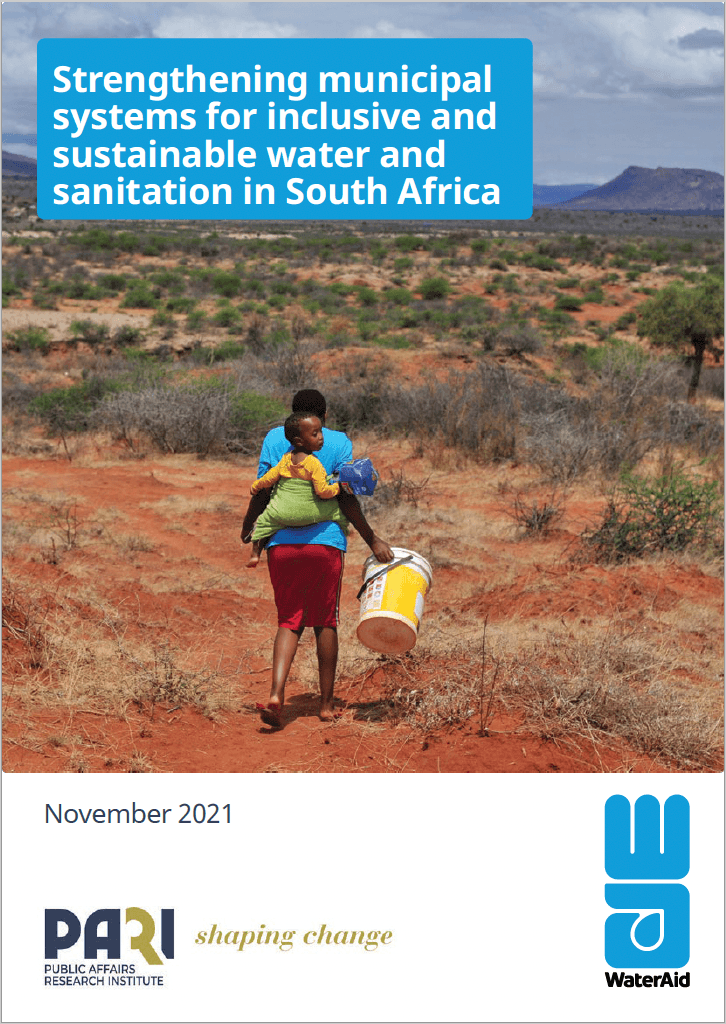Water and sanitation progress globally is characterised by poor sustainability, social exclusion, weak accountability, poor scalability, and insufficient prioritisation and resourcing.
These issues are symptomatic of system weaknesses, so require systems thinking to tackle them. They are worsened and made more urgent by poor environmental sustainability, growing demand and competition for water, weak governance, structural inequalities, and climate change.
In theory, South Africa has in place many of the requirements to deliver Sustainable Development Goal (SDG) 6 (universal access to water and sanitation): a clear institutional framework, progressive policies and regulations, an engaged and informed media, and an active citizenry that creatively and persistently claims their socio-economic rights, including to water and sanitation. However, in May 2020, the Department of Water and Sanitation (DWS)i confirmed that only 64% of households had access to a reliable water supply service and the 2019 National Water and Sanitation Master Plan reports that after 26 years, the percentage of the population receiving reliable water services is lower than it was in 1994. Eighteen percent of the population does not have access to improved sanitation.
Many of the challenges associated with water and sanitation service provision relate to the state of local government. National government and donors have invested significant resources in building municipal systems: increasing capacity and strengthening governance. Despite these investments, many municipalities are still unable to deliver a basic and reliable service to all households.




